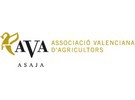The Valencian Association of Agricultural Producers (AVA-ASAJA) has released a statement to express its "consternation" and has requested "explanations" from all levels of the Administration with powers in agriculture and food safety regarding the information published in international media, according to which the European Union would have negotiated an agreement with South Africa to allow the unloading in EU ports of more than 2,000 containers of oranges from this third country, stalled because compliance with the necessary cold treatment hasn't been proven. This regulation has been in force since July 14 and aims to prevent the introduction and spread of the false codling moth (Thaumatotibia leucotreta) quarantine pest in European territory.
In order to clarify the facts and, if necessary, get the details of what has been negotiated behind the back of the agricultural sector and under what terms, AVA-ASAJA has addressed the Commissioner for Agriculture, Janusz Wojciechowski, the Commissioner for Health and Food Safety, Stella Kyriakides, the Spanish Minister of Agriculture, Luis Planas; Spanish MEPs Esteban González Pons, Juan Ignacio Zoido (PP), Inmaculada Rodríguez-Piñero (PSOE), Mazaly Aguilar (VOX) and Idoia Villanueva (Podemos); Compromís MP Joan Baldoví, as well as the President of the Government of the Region of Valencia, Ximo Puig, and the Councilor for Agriculture, Mireia Mollà. The association has also forwarded the letter to ASAJA for the issue to be addressed by both the interprofessional Intercitrus and COPA-COGECA, an entity that brings together the main professional agricultural organizations and cooperatives in the EU.
The president of AVA-ASAJA, Cristóbal Aguado, said that if this negotiation is real, Brussels can be accused of "having dismissed a phytosanitary risk because of commercial interests, after solid, technical arguments were made on May 25, not even three months ago. If the Standing Committee on Plants, Animals, Food and Feed (SCoPAFF) approved the cold treatment to oranges from countries with the presence of the false codling moth was because it took into account the threat posed by these foreign imports; a very real risk, based on the many interceptions of this pest in citrus fruits from South Africa and other third countries.
In fact, AVA-ASAJA revealed that, during the month of July, the Directorate General for Health and Food Safety of the European Commission reported a total of seven detections of pests and diseases in South African citrus imports, including two lots contaminated with false codling moth (one in mandarins and one in oranges).
The agrarian organization has also called on the authorities "to become involved in order for the cold treatment requirement to be extended to mandarins and grapefruit, two citrus species that, in view of the latest detections of false codling moth, pose the same phytosanitary risk as oranges."
 For more information:
For more information:
AVA-ASAJA
www.avaasaja.org
